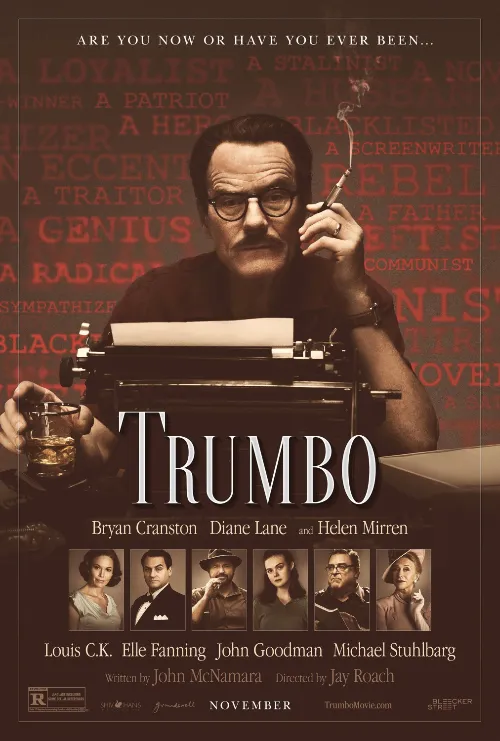Trumbo

Making money at the expense of others is so deeply rooted in the American identity that anyone who raises the slightest concern against the idea, who argues for a fairer distribution of wealth, is immediately ousted as a socialist or, worse, a communist. As if wanting your peers to be able to eat, live in a house and see a doctor—to live a life in dignity—is a bad thing. Whenever a US government attempts to implement measures that would redistribute some wealth from the top to those who have a lot less, some old bloke who hasn’t worked a proper job in years, maybe never, goes onto Fox News and screams, “Socialists! I earned it, so it’s mine.”
It happens now, and it happened then, some seventy years ago, when Dalton Trumbo and nine other screenwriters and actors, the Hollywood 10, were blacklisted from working in Tinseltown because they wanted to live in a fairer country. Trumbo was forced to write under pseudonyms and leave his admittedly very decadent home. What comrade has a private pond? He continued to write bangers and won Oscars he couldn’t accept. Trumbo was later rehabilitated.
I liked Trumbo because I like period movies. But also because it tells an important story about one of humanity’s persistent flaws: That different voices need to be listened to even if you don’t like their sound.
(2015) Director: Jay Roach. Screenplay: John McNamara. Cast: Bryan Cranston, Diane Lane, Helen Mirren, Louis C.K., Elle Fanning, John Goodman, Michael Stuhlbarg.